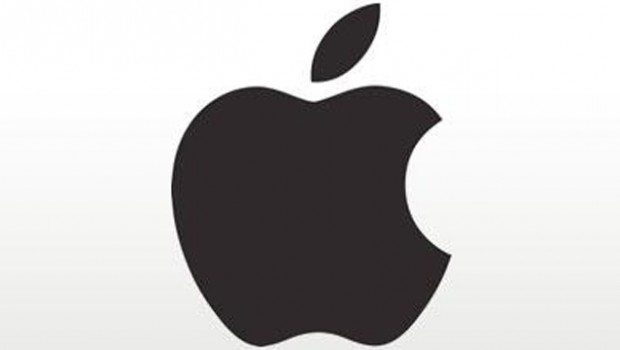Apple Announces New ResearchKit Studies for Autism, Epilepsy & Melanoma
Researchers from Duke University, Johns Hopkins and Oregon Health & Science University Launch New Medical Studies Using ResearchKit
CUPERTINO, California — 16 October 2015 — Apple® today announced that ResearchKit™ is enabling new research studies on autism, epilepsy and melanoma. ResearchKit turns iPhone® into a powerful tool for medical research by helping doctors, scientists and other researchers gather data more frequently and more accurately from participants using iPhone apps. With ResearchKit, study participants can review an interactive informed consent process, easily complete active tasks or submit survey responses, and choose how their health data is shared with researchers, making contributions to medical research easier than ever. Researchers and developers have already contributed to ResearchKit, with more than 50 researchers adding to the open source framework.
“We’re honoured to work with world-class medical institutions and provide them with tools to better understand diseases and ultimately help people lead healthier lives,” said Jeff Williams, Apple’s senior vice president of Operations. “In just six months, ResearchKit apps studying everything from asthma and diabetes to Parkinson’s disease, are already providing insights to scientists around the world and more than 100,000 participants are choosing to contribute their data to advance science and medical research.”
With user permission, researchers designing studies using ResearchKit can also access data from the Health app such as weight, blood pressure, glucose levels, and other data measured by third-party devices and apps, to capture real-time data right from the iPhone. Access to the accelerometer, microphone, gyroscope and GPS sensors in iPhone deliver additional insight into a participant’s gait, motor impairment, fitness, speech and memory, delivering more objective data to medical researchers.
New ResearchKit Studies
Autism: Duke University and Duke Medicine are launching “Autism & Beyond” for parents with concerns about autism and other developmental issues. The Duke research team is looking at whether the front-facing camera on an iPhone can be used to detect signs of developmental issues at a much younger age. The app uses novel emotion detection algorithms to measure a child’s reaction to videos shown on iPhone. Duke is partnering with Peking University in China and other international partners to conduct the study.
“Autism & Beyond combines well-established screening questionnaires with a new video technology that makes it possible to analyse the emotions of children so that we may one day be able to automate the screening for conditions such as autism and anxiety,” said Ricky Bloomfield, Director of Mobile Technology Strategy and Assistant Professor in Internal Medicine & Paediatrics at Duke University. “ResearchKit enables us to put an entire medical study in a single app, reaching so many more people than we ever could before.”
Epilepsy: The EpiWatch app developed by Johns Hopkins is the first study of its kind to be conducted with Apple Watch using ResearchKit. The study will test whether the wearable sensors included in Apple Watch can be used to detect the onset and duration of seizures. During the first phase of this study, researchers will use a custom complication on the Apple Watch to provide patients with one-touch access to trigger the custom watch app to capture accelerometer and heart rate sensor data to capture the digital signature of their seizure and send an alert to a loved one. The app will keep a log of all seizures and the participant’s responsiveness during the event. The app also helps participants manage their disorder by tracking their medication adherence and by screening for side effects, while allowing participants to compare their condition with others in the research study.
“Epilepsy impacts over 2 million people in the United States. This new app, designed using ResearchKit, provides patients with interactive activities that help them manage their condition now, and opens the door to developing an app that can detect various seizure types and alert family and caregivers,” says Gregory Krauss, M.D., Professor of Neurology at the Johns Hopkins University School of Medicine. “Now we have the opportunity to use technology to monitor seizures across the country and collect data in a totally new way.”
Melanoma: Oregon Health & Science University is studying whether digital images taken on an iPhone can be used to learn about mole growth and melanoma risks and could help people better manage skin health by photographing and measuring mole size over time. Research participants will be able to document mole changes and share them directly with health professionals, and researchers will be able to capture images from tens of thousands of iPhone users around the globe to help create detection algorithms which can be used in future studies to potentially screen for melanoma.
“Melanoma is the poster child for early detection. If we can identify melanomas earlier by creating a simple way for patients to share images of their moles we can learn more about the progression of the disease,” said Sancy Leachman, M.D., Ph.D. Chair of Dermatology and Director, Melanoma Research Program, at the Knight Cancer Institute. ”Expanding our pool of research participants is a critical step in gaining the information we need. ResearchKit makes this easier than ever with the development of a simple iPhone app.”
Expansion of ResearchKit Framework
Researchers and developers using the open source software framework continue to contribute to ResearchKit with new modules, active tasks and custom surveys. The Active Task module enables researchers to gather more targeted data for their study by inviting participants to perform activities that generate data using iPhone’s advanced sensors. Initial Active Task modules included tasks to measure motor activities, fitness, cognition and voice.
In just six months, more than 50 researchers have contributed active tasks to support new methods of research, including tasks to study tone audiometry for hearing loss; the ability to measure reaction time through delivery of a known stimulus to a known response; a timed walk test; PSAT to assess the speed of information processing and working memory, and the mathematical puzzle Tower of Hanoi often used for cognition studies. Additional contributions to the ResearchKit framework include iPad® support, image capture and the ability to add pie charts, line graphs and discrete graphs for more detailed dashboards.
For more information on ResearchKit, visit www.apple.com/au/researchkit and for details on how to access the open source framework, visit www.researchkit.org.
To learn more about existing studies using ResearchKit, visit www.appstore.com/researchkit. ResearchKit studies are available in Austria, China, Germany, Hong Kong, Switzerland, the UK and the US.
Apple revolutionised personal technology with the introduction of the Macintosh in 1984. Today, Apple leads the world in innovation with iPhone, iPad, the Mac and Apple Watch. Apple’s three software platforms — iOS, OS X and watchOS — provide seamless experiences across all Apple devices and empower people with breakthrough services including the App Store, Apple Music, Apple Pay and iCloud. Apple’s 100,000 employees are dedicated to making the best products on earth, and to leaving the world better than we found it.







